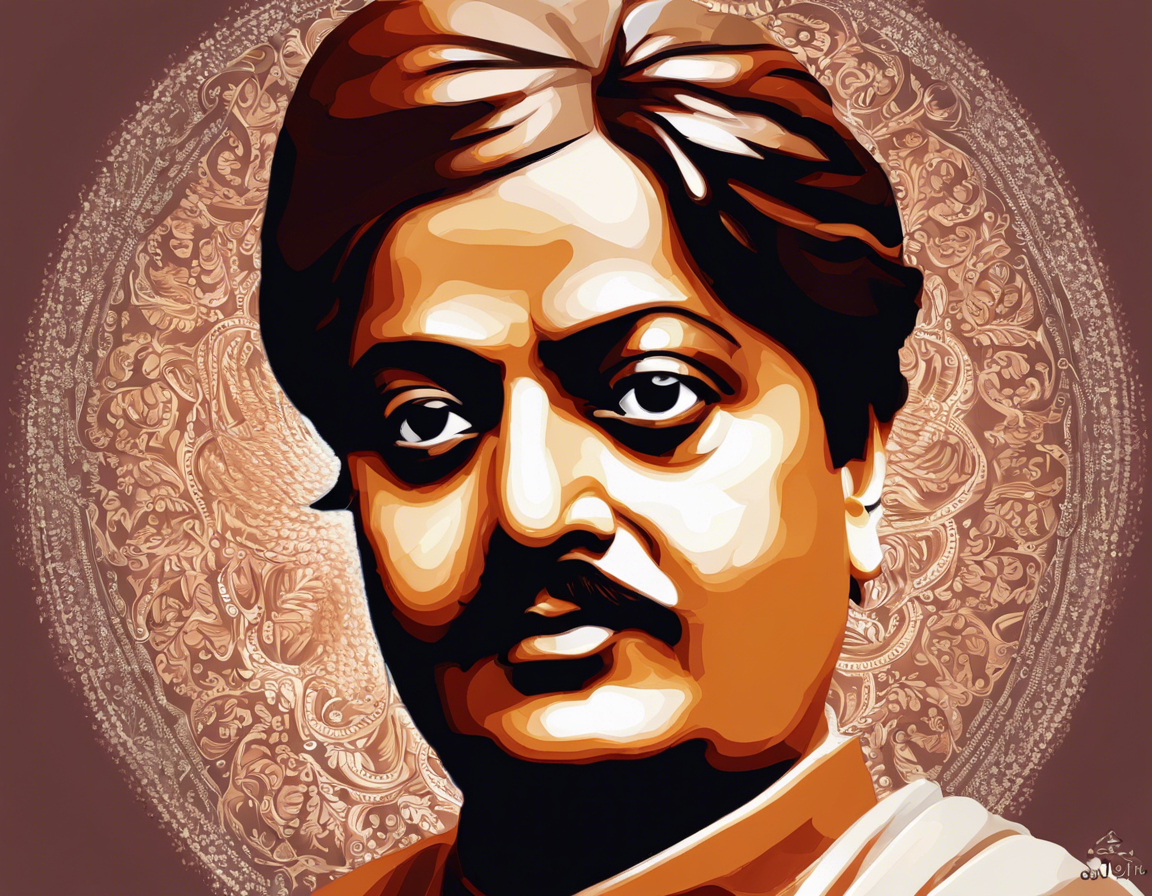
Swami Vivekananda, a revered spiritual leader, philosopher, and social reformer, has left an enduring legacy that continues to inspire and guide millions around the world. Born in 1863 in Calcutta, India, as Narendranath Datta, Swami Vivekananda played a pivotal role in reintroducing the philosophies of Vedanta and Yoga to the Western world and revitalizing Hinduism in India. His teachings on self-realization, service to others, and the unity of all religions have transcended time and continue to resonate with seekers of truth and wisdom.
Early Life and Spiritual Awakening
Swami Vivekananda’s journey towards spiritual enlightenment began at a young age. He met his spiritual mentor, Sri Ramakrishna Paramahamsa, who imparted profound spiritual insights and guided him on the path of spiritual realization. Swami Vivekananda’s deep spiritual experiences and intellectual acumen led him to embrace a life of renunciation and service to humanity.
Teachings and Philosophy
On Self-Realization
Central to Swami Vivekananda’s teachings is the concept of self-realization. He emphasized the importance of discovering one’s true self beyond the limitations of the ego and external identities. According to Swami Vivekananda, self-realization is the key to unlocking one’s inner potential and achieving lasting peace and fulfillment.
On Service to Others
Swami Vivekananda believed in the power of service to others as a means of realizing one’s spiritual nature. He often said, “They alone live who live for others; the rest are more dead than alive.” His message of selfless service and compassion towards all beings continues to inspire individuals to lead a life of purpose and meaning.
On the Unity of All Religions
One of Swami Vivekananda’s most profound teachings is the unity of all religions. He emphasized that beneath the diversity of religious beliefs and practices lies a common spiritual essence that unites all faiths. Swami Vivekananda’s vision of religious harmony and tolerance has become increasingly relevant in today’s world, marked by religious conflict and division.
Impact and Influence
Swami Vivekananda’s historic speech at the World’s Parliament of Religions in Chicago in 1893 marked a turning point in the spread of Eastern spirituality to the West. His groundbreaking address on universal tolerance and acceptance garnered widespread acclaim and introduced the world to the rich spiritual heritage of India. Swami Vivekananda’s teachings have since inspired countless individuals, from scholars and activists to spiritual seekers and world leaders.
Legacy and Continuing Relevance
Swami Vivekananda’s legacy endures through the global network of Ramakrishna Mission centers and organizations dedicated to serving humanity and promoting spiritual values. His timeless wisdom on self-transformation, social reform, and spiritual unity continues to resonate with a new generation seeking meaning and purpose in an ever-changing world.
Frequently Asked Questions (FAQs):
1. What was Swami Vivekananda’s main message to the world?
Swami Vivekananda’s main message revolved around self-realization, service to others, and the unity of all religions. He emphasized the importance of discovering one’s true self, serving humanity selflessly, and recognizing the common spiritual essence of all faiths.
2. How did Swami Vivekananda impact the Western world?
Swami Vivekananda’s historic speech at the World’s Parliament of Religions in Chicago in 1893 introduced the West to the teachings of Vedanta and Yoga and promoted interfaith dialogue and understanding. His message of universal tolerance and acceptance continues to influence Western thought and spirituality.
3. What is the significance of Swami Vivekananda’s teachings on self-realization?
Swami Vivekananda believed that self-realization is the key to unlocking one’s inner potential and achieving lasting peace and fulfillment. By transcending the limitations of the ego and external identities, one can discover their true self and realize their spiritual nature.
4. How did Swami Vivekananda promote the unity of all religions?
Swami Vivekananda emphasized that all religions lead to the same ultimate truth and share a common spiritual essence. He advocated for religious harmony, tolerance, and understanding, and promoted the idea that diversity of beliefs should be celebrated as different paths to the same goal.
5. What is the lasting impact of Swami Vivekananda’s teachings in modern society?
Swami Vivekananda’s teachings on self-transformation, social reform, and spiritual unity continue to inspire individuals to lead a life of purpose and meaning. His message of service to humanity and the importance of spiritual realization remains relevant in addressing the challenges of the contemporary world.
